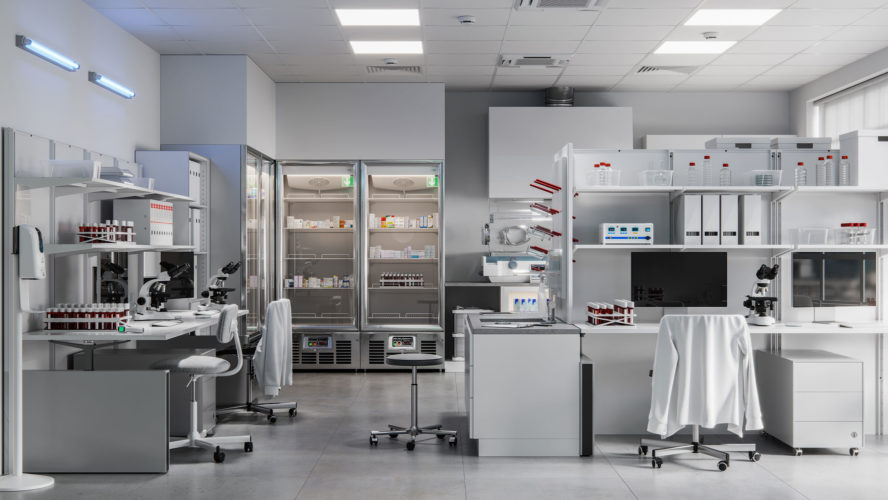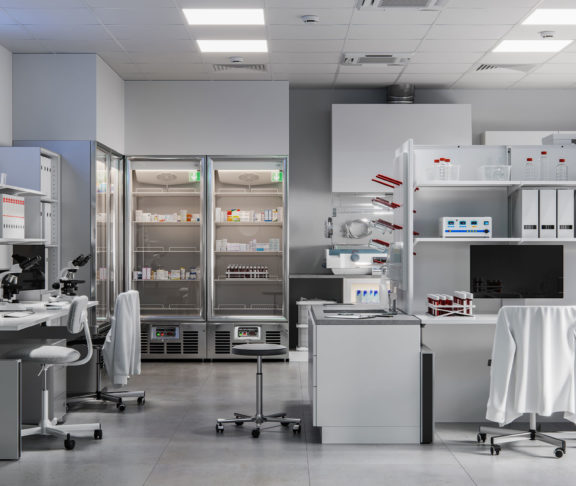The president of the Association for Diagnostics & Laboratory Medicine Dr. Octavia M. Peck Palmer shared her thoughts on how technologies like AI are impacting the field, and what recent breakthroughs in lab medicine mean for patients and providers.

Dr. Octavia M. Peck Palmer
President, Association for Diagnostics & Laboratory Medicine (ADLM, formerly AACC)
“Laboratory medicine is an integral part of patients receiving the care they need.”
What made you so passionate about medical testing methodology and equipment?
I discovered the field of laboratory medicine while I was in graduate school, and I chose to pursue it because of the critical role it plays in healthcare. Laboratory medicine professionals develop, perform, and interpret clinical tests, giving clinicians the vital insight they need to make accurate and timely diagnoses, and patient care-management decisions.
Our field promotes health equity by developing innovative test methodologies to meet the health needs of the communities we serve. We ensure patient access to accurate tests in a variety of settings (e.g., in hospital/clinic, in-home/near the patient) and provide results that both the patient and physician can use to make lifestyle decisions.
Have there been any recent technological breakthroughs in diagnostics and lab medicine that you’re particularly interested in?
The intersection of lab medicine with artificial intelligence (AI) is exciting. AI models, and a subset of AI known as machine learning (ML), have the potential to launch healthcare into a new era by mining medical data to discover cures for diseases, identify vulnerable patients before they become ill, and optimize personalized testing and treatments. This field is relatively new, and laboratory medicine professionals are poised to be at the forefront of developing algorithms based on the data they generate, and ensuring the ethical and standardized use of this technology.
Our research community and in vitro diagnostics manufacturers are already employing powerful data analytics to advance scientific knowledge and bring these new capabilities to today’s laboratories. On a day-to-day basis, we evaluate, implement, and interpret the most sophisticated measurement technology to deliver essential insights about patient health.
And while a doctor ordering a test sees a single question seeking a particular answer, laboratory professionals bring a broader perspective to the table. We can place discrete test results into a larger context that leads to additional and better questions, which in turn lead to more answers that enable positive patient outcomes.
What do these advancements mean for patient outcomes, informed care, and overall care delivery?
AI and ML could dramatically improve patient care by fundamentally changing how patients are diagnosed and treated. For example, in one recent study presented at ADLM’s annual meeting this year, a research team trained ML models to predict people’s risk of developing multiple sclerosis, a potentially disabling central nervous system disease that is notoriously difficult to detect early because scientists don’t fully understand what causes the condition.
Using more than 3,000 sets of patient data gathered up to three years before a diagnosis, the models accurately predicted which patients were at risk. This is significant because it could help patients start treatment sooner, slow the disease’s progression, and improve patient quality of life.
ML has also shown promise in detecting patient samples that are contaminated and require rejection, in improving kidney stone diagnosis and treatment, and even in predicting blood clot risk using a smartphone app.
It’s important to emphasize that there are significant challenges that must be overcome before AI use becomes widespread. Guidelines or best practices for validating the algorithms used in AI are still being developed.
Additionally, there’s the ethical question of how to ensure patient data is used properly. ML models are trained on large sets of patient data to fine-tune their predictive abilities, but how should we obtain consent from patients to include their data in these training data sets? How can we prevent biases (e.g., racial, ethnic, gender, sex) from influencing the ML models? These are important questions to consider as AI becomes more commonplace in healthcare, and laboratory medicine experts are playing a key role in finding answers to them.
How do you see technology changing diagnostics and laboratory medicine in the future?
In addition to AI, point-of-care testing (POCT) is one of the fastest-growing disciplines within laboratory medicine and clinical diagnostics. POC tests are performed near the patient — at a patient’s bedside, at a pharmacy, or even at home — and they make it easier for patients to access high-quality testing, particularly in remote or medically underserved communities. POCT results are generated quicker than traditional laboratory testing, which leads to timelier treatment and better patient outcomes overall.
As we all know, laboratory medicine professionals used POCT to identify COVID-19 within the population and it played a huge role in managing the pandemic. Laboratory medicine professionals are continuing to use technological advances, such as microfluidics and molecular diagnostics, to develop POC tests for new diseases and syndromes.
Is there anything else you’d like our readers to know about diagnostics and laboratory medicine?
Laboratory medicine is an integral part of patients receiving the care they need. Patient care starts well before they receive a prescription or undergo an operation; it begins with a diagnosis, which requires precise clinical testing, as well as laboratory medicine experts who can interpret the results of these tests.
The field now finds itself in an exciting chapter, where new technology will enable the Association for Diagnostics & Laboratory Medicine and the larger laboratory medicine profession as a whole to continue pursuing our mission: better health through laboratory medicine.

